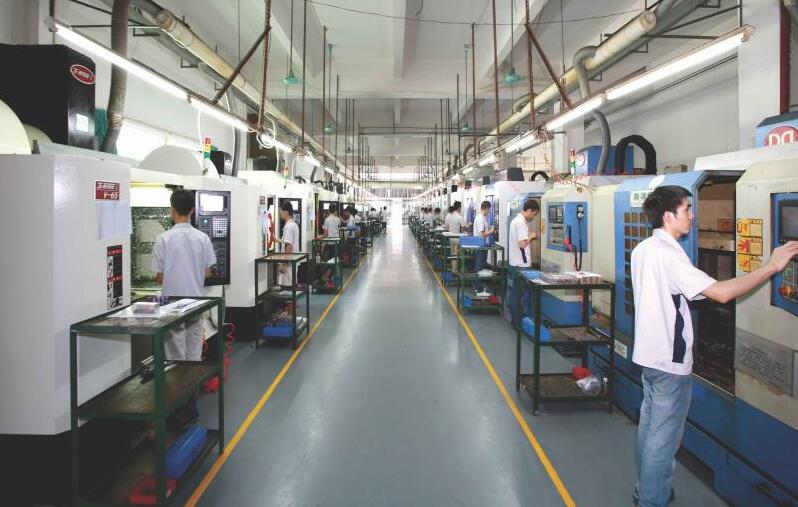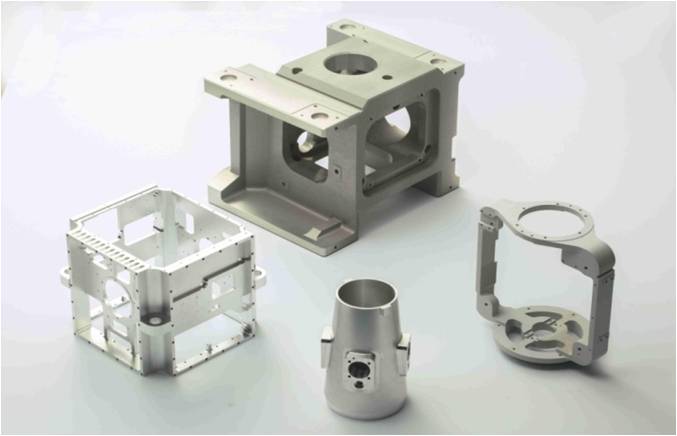Discover everything about custom CNC milling services—from benefits and materials to costs and applications. Learn why CNC milling is vital in today’s precision manufacturing.
Introduction to Custom CNC Milling Services
In today’s fast-moving manufacturing world, precision is everything. That’s where custom CNC milling services shine. These services help businesses create accurate, repeatable parts that meet strict design specs. Whether it’s for automotive parts, aerospace components, or medical devices, CNC milling offers a reliable solution for high-quality machining needs.
CNC stands for Computer Numerical Control. In simple terms, CNC milling is a subtractive process that cuts away material from a solid block to make a desired shape. But what makes this method special is the level of detail and consistency it offers. When paired with custom designs, CNC milling becomes one of the most flexible and precise manufacturing tools available.
Custom CNC Milling Services
At its core, CNC milling is about control and accuracy. But custom CNC milling services take things a step further. These services allow for unique specifications tailored to a customer’s needs. Whether you need one prototype or 10,000 identical parts, CNC milling makes it happen without breaking a sweat.
Custom CNC milling services are used in nearly every industry. They are especially useful for producing complex shapes, tight tolerances, and smooth finishes. And thanks to advanced software and modern machinery, even the most intricate parts can be milled with stunning accuracy.
Understanding the Basics of CNC Milling
So, how does CNC milling actually work? Imagine a sculptor carving a statue from a block of stone. Now swap out the chisel for a high-speed rotating cutting tool, and the hands of the sculptor for computer software. That’s CNC milling.
The machine follows a programmed path based on a digital file—often a 3D CAD design. This file tells the machine exactly where to move, how fast to cut, and what tool to use. The main components of a CNC milling machine include:
- Spindle: Holds and spins the cutting tool.
- Worktable: Where the material (or “workpiece”) is mounted.
- Control unit: The “brain” of the system, which interprets code and sends commands.
- Tool changers: Allow switching between different tools automatically.
This setup allows for incredible flexibility and precision in making parts.
Types of CNC Milling Processes
Not all milling machines are the same. Depending on the part and its design, you might choose different types of CNC milling:
Vertical CNC Milling
This is the most common type. The spindle is positioned vertically, and the part moves along the X and Y axes. It’s ideal for flat parts and surface work.
Horizontal CNC Milling
Here, the spindle is horizontal. This setup is better for deep cavities and heavier materials. It also allows for better chip evacuation.
Multi-Axis Milling (3-, 4-, and 5-Axis)
Multi-axis machines move in more than three directions. This means they can work on complex shapes and angles in a single setup. These machines are often used for aerospace and medical parts.
By choosing the right type of milling process, manufacturers can boost quality and reduce costs.
Applications of Custom CNC Milling Services
CNC milling is everywhere. From the car you drive to the phone in your hand, CNC-machined parts are all around you. Here are some top industries that rely on custom CNC milling services:
| Industry | Common Applications |
| Aerospace | Engine components, airframe parts |
| Automotive | Engine blocks, transmission cases |
| Medical | Surgical instruments, prosthetics |
| Electronics | Housings, connectors, heat sinks |
| Robotics | Gears, brackets, control arms |
| Defense | Weapon components, navigation systems |
These sectors require parts with exact dimensions and smooth finishes. CNC milling helps meet those demands—fast and efficiently.
Material Options for Custom CNC Milling
One of the great things about CNC milling is the wide range of materials it supports. Here’s a quick table of popular materials and their common uses:
| Material | Advantages | Common Uses |
| Aluminum | Lightweight, corrosion-resistant | Aerospace, automotive |
| Steel | Strong, durable | Industrial, construction tools |
| Brass | Easy to machine, corrosion-resistant | Fittings, electronics |
| Titanium | High strength-to-weight ratio | Medical implants, aerospace |
| Plastics | Lightweight, cost-effective | Prototypes, housings |
| Copper | Excellent conductivity | Electrical components |
Choosing the right material is key to the success of any project. It impacts cost, strength, weight, and performance.
Design Tips for CNC Milled Parts
Designing for CNC milling isn’t just about making something that looks cool. It’s about creating parts that are easy to manufacture and cost-effective. Here are a few tips to keep in mind:
- Avoid unnecessary complexity: Simple shapes are quicker and cheaper to machine.
- Use standard hole sizes: Helps avoid special tooling.
- Watch your wall thickness: Too thin, and parts may bend or break.
- Include radii on inside corners: Sharp corners are tough on tools and take longer to cut.
Smart design can mean faster production times and lower costs.
Cost Factors in Custom CNC Milling Services
Let’s talk money. CNC milling can range in price depending on several things. Here are key cost drivers:
| Factor | Impact on Cost |
| Setup time | High for small batches, lower for large runs |
| Machine time | Depends on part complexity and material hardness |
| Tooling | Special tools may raise the cost |
| Material costs | Varies by metal or plastic type |
| Volume | More parts = lower cost per unit |
Looking for low cost CNC machining? Work with a shop that uses efficient setups and can help optimize your design.
Choosing the Right CNC Milling Service Partner
Not all shops are created equal. Here’s what to look for in a CNC milling partner:
- Experience: Do they have a track record with similar parts?
- Capabilities: Can they handle your material and tolerances?
- Certifications: ISO, AS9100, or others for quality assurance.
- Lead times: Can they deliver parts when you need them?
- Customer support: Are they responsive and helpful?
A good partner can make or break your project. Choose wisely.
Quality Control in Custom CNC Milling
Precision parts must meet high standards. That’s why top shops use strict quality checks. Common practices include:
- Coordinate Measuring Machines (CMM): Measures complex shapes.
- Calipers and Micrometers: For standard dimensions.
- First Article Inspection (FAI): Verifies initial part quality.
- In-Process Checks: Keeps an eye on quality during production.
At SYM Precision Machining, we follow rigorous checks to ensure every part meets exact requirements.
Advantages of Custom CNC Milling
Why should you consider CNC milling over other methods? Here’s a look at the benefits:
- Accuracy: Tolerances as tight as ±0.001″.
- Repeatability: Every part is identical.
- Speed: Fast production and turnaround times.
- Flexibility: Can machine nearly any shape or material.
- Customization: Perfect for prototypes or special parts.
It’s hard to beat CNC milling when it comes to reliability and performance.
Custom CNC Milling Services at SYM Machining
At SYM Precision Machining, we offer top-tier custom CNC milling services that meet your exact needs. Whether you’re working on a new prototype or need high-volume production, our skilled engineers and advanced machines deliver the results you expect.
We specialize in:
- Precision CNC milling for complex parts
- Fast turnaround for urgent projects
- Multi-material capabilities, from aluminum to titanium
- Affordable pricing without sacrificing quality
Learn more about SYM Machining’s capabilities here

FAQs
What is the average cost of custom CNC milling?
It varies based on material, complexity, and volume. Small jobs may cost $75–$150/hour.
Can CNC milling be used for plastic parts?
Yes! CNC milling is great for plastic prototypes or final parts.
How long does CNC milling take?
Lead time depends on complexity and volume. Some parts ship in 1–3 days.
What materials are best for CNC milling?
Aluminum, steel, and titanium are top choices, but many plastics and metals work well too.
Is CNC milling better than 3D printing?
It depends. CNC milling offers better strength and surface finish for many parts.
Do I need a CAD file for CNC milling?
Yes, a 2D or 3D CAD file is essential for programming the machine.
Conclusion
Custom CNC milling services are a vital part of modern manufacturing. They offer precision, flexibility, and speed for a wide range of materials and applications. Whether you’re building a prototype or scaling up for production, CNC milling delivers outstanding results. By understanding the process and partnering with the right supplier, you can unlock huge benefits in quality and cost savings.
Looking for reliable, affordable, and precise CNC milling solutions? SYM Precision Machining is here to help. Get your free quote today!



